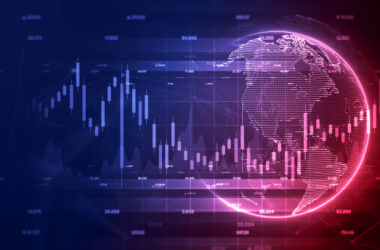European Union Launches 14th Round of Sanctions Against Russia, Targeting LNG Exports
The European Union (EU) has announced its 14th round of sanctions against Russia, specifically targeting Vladimir Putin’s regime and their liquefied natural gas (LNG) exports. This marks the first time that LNG has been included in the EU’s sanctions against Russia.
The measure is a response to Putin’s ongoing aggression towards Ukraine, which has now entered its 29th month. The EU hopes to limit funds to Putin’s regime by targeting their major source of revenue – natural gas exports.
However, these new sanctions do not include a complete ban on Russian gas shipments to the EU. This is due in part to the fact that EU member countries are still allowed to purchase LNG from Moscow, despite the bloc’s goal of phasing out Russian fossil fuels by 2027.
The EU’s decision to impose these sanctions follows similar actions taken by the United States and the United Kingdom in 2022, when they implemented a ban on Russian oil imports with a few exceptions.
Key Measures of the Sanctions Package
The primary measure in the new sanctions package, which was approved last week despite opposition from Germany and Hungary, is a ban on trans-shipments of Russian LNG from EU ports. This effectively prevents the commodity from being sold to third countries through EU ports.
The package also targets specific vessels, including 27 oil tankers, that are used to circumvent the price cap on Russian oil set by the G7 countries. Additionally, the sanctions will also eventually target vessels carrying ammunition from North Korea to Russia or transporting grain stolen from Ukraine by Moscow.
Furthermore, the package includes a ban on new investments and services for ongoing LNG projects in Russia. This aims to impede Russia’s efforts to expand its LNG exports and increase its market share.
Other measures include restrictions on EU businesses using the Bank of Russia’s system for transfer of financial messages (SPFS), which is the Russian version of the Western inter-bank messaging system, SWIFT. The European Council will be able to create a list of non-Russian third-country banks connected to the system and prohibit them from conducting business with EU entities.
Sanctions Targeting Russian Individuals and Media
The EU has also implemented restrictions on access to Russian media and imposed new technological and export limitations. Additionally, a new blacklist of 116 individuals has been created, including Russian singer Yaroslav Dronov, also known as Shaman, whose song “I’m Russian” was played daily to the late democracy campaigner Alexei Navalny in his prison cell. Another targeted individual is popular Russian singer Polina Gagarina, who performed for Putin at an event in Crimea following the invasion of Ukraine.
The EU has also imposed bans on wealthy Russians from traveling to EU resorts on private jets. These restrictions are part of a larger effort to target individuals who support the war in Ukraine.
EU Remains Determined to Act Against Russian Aggression
Announcing the sanctions, the European Commission stated, “As the Russian aggression against Ukraine continues, the EU remains determined to keep acting to further reduce Russia’s sources of revenue and capacity to wage war. Today’s measures send a clear and strong signal of EU unity and our support for Ukraine and its people.”
Will the Sanctions Have a Significant Impact?
The effectiveness of these sanctions remains to be seen, as they were ultimately watered down before being implemented. According to reports, Germany prevented the expansion of measures that would have required EU companies to guarantee that their customers would not sell prohibited goods to Russia.
Hungary, whose imports of Russian LNG increased by 59% in the last year, also requested assurances that the sanctions would not affect the construction of the Paks II nuclear power plant, which is being built by the state-owned Russian company Rosatom.
It is likely that these sanctions will only have a limited impact on Russia, as they do not cover gas imports through pipelines via Turkey and Ukraine. These pipelines supply gas to countries such as Austria, Italy, and Belgium, which rely heavily on Russian gas.
Furthermore, while the ban on trans-shipments may make it more difficult for Russian LNG exports to reach their intended destination, it is unlikely to stop them completely. Russia may simply resort to using longer shipping routes, and a significant amount of LNG previously exported through these ports is now being redirected to Europe itself.
While the EU’s efforts to deprive Putin’s regime of funds are commendable, there is still room for stronger action. This highlights the extent to which the EU relies on Russian gas and the challenges of reducing this dependence.



